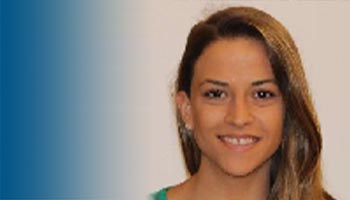HOW CAN WE HELP YOU? Call 1-800-TRY-CHOP
In This Section
These Talented Coordinators Keep the Clinical Research Engine Humming

CHOP Research Institute honored clinical research coordinators’ talent with the CRC RE@CH Awards.
droseyb [at] email.chop.edu (By Barbara Drosey)
The biggest question at the Seventh Annual CRC RE@CH Award event seemed to be: Is there anything a clinical research coordinator can’t do?
The visual theme of the virtual awards presentation held July 21 celebrated the “superpowers” CRCs exhibit every day. All 25 nominees demonstrate compassion, flexibility, and integrity; serve as advocates for patients and families; exhibit exquisite attention to detail; and display strong leadership skills in myriad ways.
Debbie Kawchak, clinical research team manager, kicked off the event with her perspective on the broad implications the COVID -19 pandemic has had on clinical research coordinators’ work and how artfully they have met the challenge.
“This event represents the best of what CHOP’s clinical research coordinator program is really all about,” Kawchak said. “We’ve all had to pivot and adjust to working from home, and the CRCs have given new meaning to flexibility, as they coordinated with families to transition to a virtual format when possible, and always with a calm, professional demeanor.”
In his opening remarks, Richard Aplenc, MD, PhD, MSCE, assistant vice president and chief clinical research officer, noted that CRCs are a critical part of his team, working alongside principal investigators to carry out important basic and translational research to advance science and improve care.
“My work would not go forward without them,” Dr. Aplenc said. “CRCs keep studies going smoothly and ensure a positive experience for patients and families. The CRCs have done a tremendous job of taking on new tasks and responsibilities in the context of the pandemic, and did so with extraordinary flexibility, capability, and compassion.”
A special appearance by the Fullum family, whose son, Athan, was the 21st person diagnosed with a NLRC4 mutation, left not a dry eye in the audience. They shared photos of their son and the story of how he received life-saving treatment as a result of participation in a clinical trial at CHOP. They recounted how their “research family” worked tirelessly to support them during emotional highs and lows, secure medical equipment when it was time for Athan to come home, and so much more.
“Clinical research saved our son’s life,” Kristen Fullum said. “The work you do not only touches patients and families who are in the trials, but those to come in the future. We are thankful for all of you and everything you do for families.”
CRC RE@ACH Award Winners
The Selection Committee noted the outstanding caliber of the CRCs who were nominated — truly a best of the best situation. While they were charged with choosing two awardees, the annual CRC RE@ACH event commends and acknowledges the work of all CRCs at the Research Institute.
“On behalf of myself, Bryan Wolf, Bev Davidson, and the entire Research Institute Leadership team, thank you for all that you’re doing with remarkable professionalism and effectiveness,” Dr. Aplenc said, offering warm congratulations to this year’s winners:
Lauren Tomlinson, Clinical Research Project Manager, Division of Ophthalmology
Nominated by Gil Binenbaum, MD, MSCE, Richard Shafritz Endowed Chair of Research

Lauren Tomlinson, Clinical Research Project Manager
In nominating Tomlinson for the CRC RE@CH Award, Dr. Binenbaum cited her coordination of the 45-hospital Postnatal Growth and Retinopathy of Prematurity Study (G-ROP). Tomlinson’s exemplary commitment to the project resulted in the single largest ROP study of its kind with more than 7,400 subjects enrolled and nearly 4,000 additional subjects enrolled in a subsequent study.
“The study was successful as a direct result of Lauren’s work,” Dr. Binenbaum shared during the awards presentation. “Lauren has a tremendous work ethic, she is compassionate, ethical, smart, and I feel fortunate to have found her. Congratulations on this well-deserved award!”
In addition to her research work, Tomlinson is an active member of PROSPER and serves as a mentor and community volunteer. She also is pursuing a career as a physician, excelling at coursework while maintaining her full-time CRC role.
“Thank you to Dr. Gil Binenbaum, who has become a great friend and mentor; thank you to letters of support writers, and to the selection committee,” Tomlinson said. “This award means a lot to me, and I’m very excited.”
Sara Nguyen, MPH, Clinical Research Project Manager, Division of Human Genetics, Department of Pediatrics
Nominated by Marni Falk, MD, Associate Professor, Division of Human Genetics, Department of Pediatrics

Sara Nguyen, MPH, Clinical Research Project Manager
In describing Nguyen’s qualifications for the CRC RE@CH Award, Dr. Falk noted her contributions were key to the successful entry of mitochondrial medicine into the clinical research space. Nguyen accomplished this with impeccable attention to data integrity, unmatched advocacy for patients, and effective communication skills.
“Sara confidently and eloquently guided us through the process and developing partnerships with internal and external partners,” Dr. Falk said. “She is a gift to the institutions, moving between departments and divisions with grace.”
Dr. Falk described the excitement and challenges of growing the mitochondrial research program from their first clinical trial in 2016 to anticipating more than six launching this year. Nguyen’s expertise is so highly valued that pharmaceutical partners request to work with her to avail her ability to navigate smoothly the complexities of study start-up at CHOP.
“Sara is a visionary who can see the entire process in her head,” Dr. Falk said. “We are so proud of her and grateful for her.”
Nguyen, who shares her knowledge through mentorship, expressed her own gratitude.
“It is a pleasure to be part of this program with my fellow nominees,” Nguyen said. “Thank you to Dr. Falk, whose energy, enthusiasm, and passion are infectious. I am grateful for the privilege to support Dr. Falk’s research.”
Accolades for All
Keynote speaker Jeffrey Gerber, MD, PhD, associate chief clinical research officer and attending physician in the Division of Infectious Diseases, noted a recent survey identified 128 activities performed by CRCs, and he quoted scientific evidence that shows adding a a study coordinator to a research team significantly increases recruitment numbers, enhances subject retention, and increases study efficiency.
“It really is the study coordinator who sits at the center and is the engine for the entire research process,” Dr. Gerber said. “Without CRCs, we cannot realize the mission and vision of the Research Institute.”
CRCs pay attention to detail while being critical thinkers, he added, and they are excellent communicators, meeting the demands of their position with the flexibility to adjust to the unexpected.
“The way I've seen our teams step up and manage their roles during the pandemic, despite so much professional and personal uncertainty, is nothing short of incredible,” he said. “Thank you for everything you do. Congratulation to the winners, and all the CRCs who are worthy of congratulations and much appreciation.”